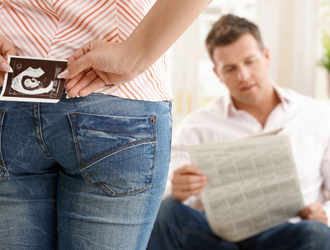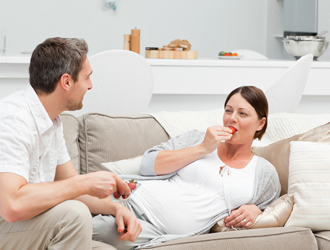Your and your significant are ready start a family of your own. To maximize your chances of getting pregnant, it’s important to know what to expect from the pregnancy process.
How and when to get pregnant
Conception requires a number of bodily activities be set in motion:1. Your body releases an egg from the ovary (ovulation).
2. A sperm fertilizes the egg (fertilization).
3. The fertilized egg then attaches itself to your uterus and begins growing (implantation).
When you can get pregnant
Your body is most fertile five days prior to ovulation and 24 hours following ovulation. Track your ovulation by outlining your menstrual cycle, monitoring your temperature, checking the texture of your cervical mucus, using an ovulation predictor kit, or using a combination of the above.
Chances of getting pregnant
There are many factors determining your chances of getting pregnant, including your age, health, and amount of time you have already been trying to conceive. Assuming you don’t have any medical issues, there is usually a 15 – 25 % chance of getting pregnant during each ovulation cycle.
Tracking your ovulation cycle and having sex frequently can increase your chances of getting pregnant.
- Pre-ovulation: A sperm can survive up to five days if trapped in cervical mucus. Therefore, having sex during pre-ovulation contributes to your chances of getting pregnant.
- Ovulation: This is your best bet for conceiving. Ovulation usually starts about 14 days before your menstrual period.
- Post-ovulation: You will witness a rise in HCG (the “pregnancy” hormone) within about a week of conceiving. Bear in mind that the chances of getting pregnant at the post-ovulation stage are relatively low.
How to get pregnant faster
Sure, you spent most of your teenage and adult life trying to avoid getting pregnant, but the moment you have decided it is time to conceive, it cannot happen soon enough. If this is the case, see these tips on how to get pregnant faster:1. Stop taking birth control – Birth control can affect your ovulation cycle even after you stop taking it, so be sure to stop taking birth control long before trying to get pregnant.
2. Quit smoking – If you or your partner smokes, it can harm not only your fertility but that of your unborn child. So why not try kicking the habit together?
3. Drink Caffeine in moderation – Caffeine has been associated with lower fertility and an increased risk of miscarriage, so try to limit your caffeine intake to one cup a day.
4. Eat a balanced diet – There is no one particular diet that has been proven to increase fertility, but if you are very skinny or obese you will have trouble conceiving. When eating seafood, opt for dishes that are low in mercury, including salmon, tuna, and catfish.
5. Tracking ovulation – If your periods are irregular, you can use a fertility or ovulation monitor to track your ovulation cycles. Ovulation can also be tracked by checking the texture of bodily secretions (cervical mucus) following your period or by using a basal thermometer to monitor your body temperature or
6. Skip the lube – Some lubes can kill off sperm and decrease your chances of getting pregnant.
7. Frequent sex – Having sex every other day, starting about 5 days before you ovulate, will increase your chances of getting pregnant. There is no proof that a particular sexual position is more conducive to conceiving.
8. Seek medical help if necessary – If you have been trying to get pregnant for a year with no luck, don’t be afraid to seek medical help.
9. Relax!
Good luck with your efforts to get pregnant!



